16 Tips and Tricks Aldi Shoppers Need to Know
For many shoppers who are serious about spending less on groceries, a trip to discount supermarket Aldi is a weekly ritual.

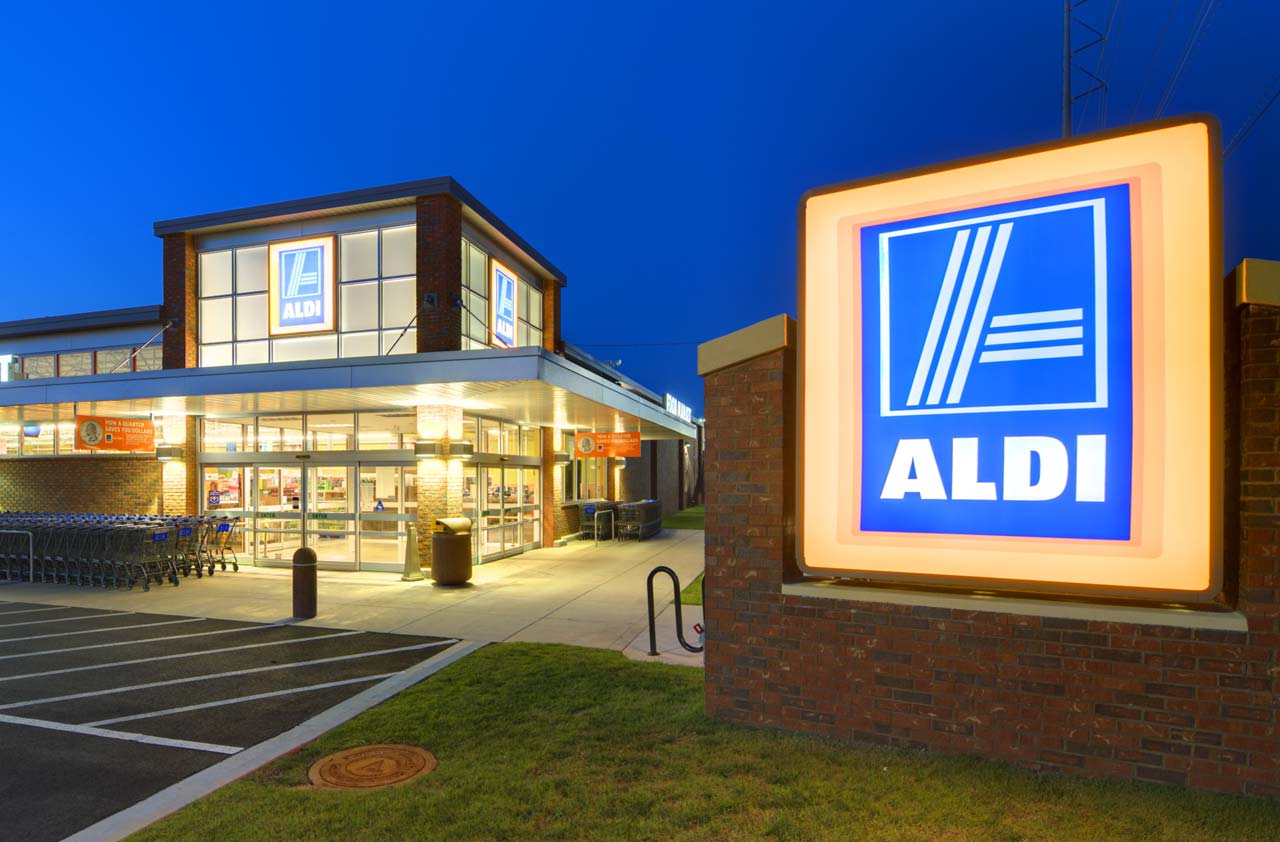
Profit and prosper with the best of Kiplinger's advice on investing, taxes, retirement, personal finance and much more. Delivered daily. Enter your email in the box and click Sign Me Up.
You are now subscribed
Your newsletter sign-up was successful
Want to add more newsletters?

Delivered daily
Kiplinger Today
Profit and prosper with the best of Kiplinger's advice on investing, taxes, retirement, personal finance and much more delivered daily. Smart money moves start here.

Sent five days a week
Kiplinger A Step Ahead
Get practical help to make better financial decisions in your everyday life, from spending to savings on top deals.

Delivered daily
Kiplinger Closing Bell
Get today's biggest financial and investing headlines delivered to your inbox every day the U.S. stock market is open.

Sent twice a week
Kiplinger Adviser Intel
Financial pros across the country share best practices and fresh tactics to preserve and grow your wealth.

Delivered weekly
Kiplinger Tax Tips
Trim your federal and state tax bills with practical tax-planning and tax-cutting strategies.

Sent twice a week
Kiplinger Retirement Tips
Your twice-a-week guide to planning and enjoying a financially secure and richly rewarding retirement

Sent bimonthly.
Kiplinger Adviser Angle
Insights for advisers, wealth managers and other financial professionals.

Sent twice a week
Kiplinger Investing Weekly
Your twice-a-week roundup of promising stocks, funds, companies and industries you should consider, ones you should avoid, and why.

Sent weekly for six weeks
Kiplinger Invest for Retirement
Your step-by-step six-part series on how to invest for retirement, from devising a successful strategy to exactly which investments to choose.
For many shoppers who are serious about spending less on groceries, a trip to discount supermarket Aldi is a weekly ritual. The chain, founded in Germany, credits its rock-bottom prices to low labor and operating costs, a limited selection of mostly inexpensive private brands, and a no-frills store design. Merchandise is often stacked in the aisles and sold straight from the cardboard box it was shipped in. Essentially, it's a grocery store that's the size of a convenience store.
If there isn't an Aldi near you, don't be surprised if one pops up soon. With 2,500 stores already up and running in 39 states, the discount grocery chain has embarked on an aggressive growth strategy. It includes remodeling existing storefronts and expanding. Aldi is also increasing its fresh food selection with vegan options, organic meats and refrigerated beverages. Never shopped at Aldi before? Here's what you need to know before your first trip.
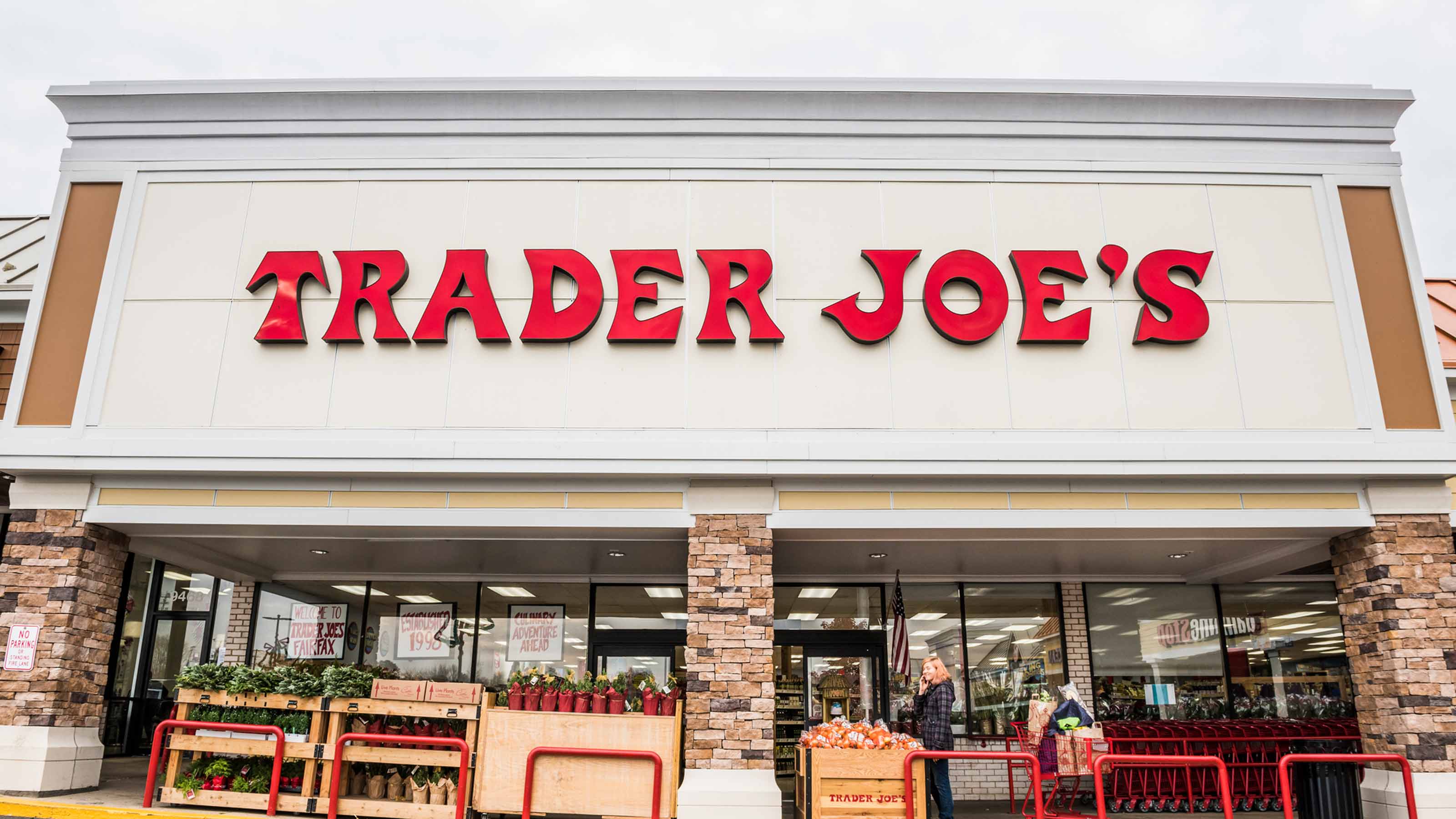
Trader Joe's Is Part of the Family
Trader Joe's and Aldi are owned by sister companies Aldi Nord and Aldi Sud. Aldi Nord owns Trader Joe's, which it acquired in 1979, and operates Aldi stores in Europe. Aldi Sud operates Aldi stores in the U.S. The first one opened in Iowa in 1976.
Aldi was founded in Germany by brothers Albert and Theo Albrecht. The brand name is a combination of the first two letters of their last name and the first two letters of the word discount. The brothers, now deceased, launched their grocery empire right after World War II but chose to split the business in 1961 reportedly due to a dispute over whether to sell cigarettes.

It's One of the World's Biggest Retailers
Aldi might not be a household name in the U.S., but it's well-known around the globe. The National Retail Federation (NRF) took a look at the top 50 most impactful international retailers and Aldi ranked fourth globally, finishing ahead of Costco and Home Depot. Walmart topped the list with Amazon coming in second.
In the U.S., Aldi's 2,500 locations outnumber better-known supermarket chains including Whole Foods, Trader Joe's, Publix, Meijer, Food Lion and Giant. Albertsons (thanks to its acquisition of Safeway) and Kroger each operate more locations than Aldi.

You Have to Bag Your Own Groceries
As part of its low-price business model, Aldi keeps a limited number of staff on the clock at any given time (typically just three to five people). This means that certain conveniences common at larger supermarket chains, such as having groceries bagged for you, is the responsibility of the customer.
- You'll want to bring your own reusable shopping bags to pack up everything you've purchased. Otherwise, you'll have to buy shopping bags when you're ready to check out. At Aldi, a paper bag costs 12 cents, while insulated plastic grocery bags range from 69 to 98 cents each.
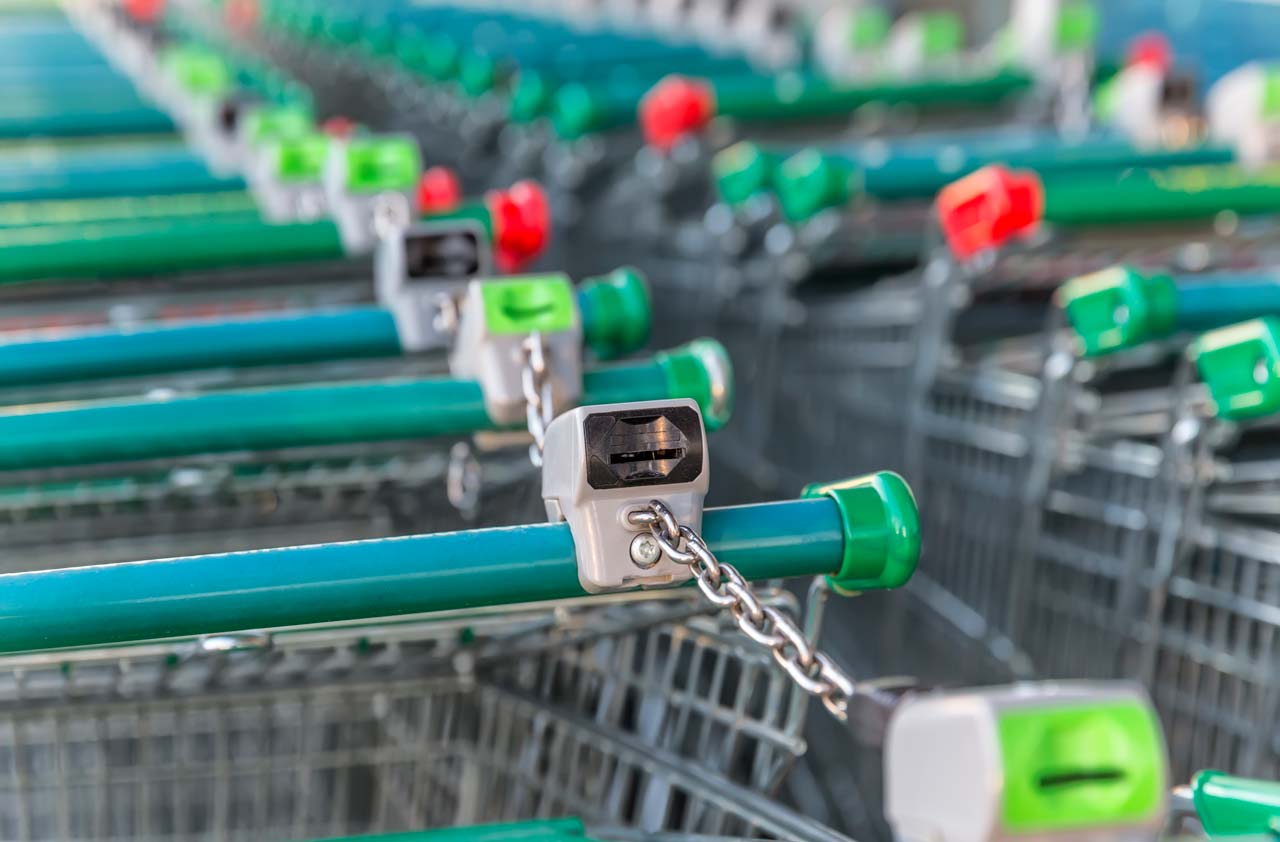
You Need a Quarter to Use a Shopping Cart
While shopping carts at most grocers are free for the taking, Aldi requires a 25-cent deposit to use a cart.
The cart rental system is simple: To release a cart for your use -- the carts are chained together — insert a quarter in the coin slot on the cart and the locking mechanism will disengage. When you return the cart and reinsert the chain, the quarter is returned.
Why all the fuss over a quarter? Aldi says it saves money, which it passes along to shoppers in the form of lower prices, because it doesn't have to pay employees to wrangle stray shopping carts from the parking lot. If you want to avoid the 25-cent deposit altogether, it's OK to bring your own collapsible cart.

90% of the Items Are Store Brands
More than 90% of the products found at Aldi stores are private brands, including organic and gluten-free brands. The company gets many of its store-brand products from the same food manufacturers that make name-brand products, says frugal living expert Lauren Greutman, meaning quality and taste are often comparable.
Aldi carries far fewer products than a typical supermarket -- 1,300 items versus 30,000 — so stores are smaller and cheaper to operate, allowing the savings to be passed along to customers. "[Aldi] typically focuses on the most popular product items and package sizes," says Jon Springer, retail editor for Supermarket News.
Shoppers can find a small inventory of name-brand products, too. Name brands stocked by the chain include Coca-Cola, Oscar Mayer, Gatorade and Tide, says Liz Ruggles, the company's director of public relations.

Store Brands Are Cheaper Than Name Brands
Aldi claims that shoppers can save 25% by opting for its store brands over national brands. To test this, we compared a selection of similar products at Aldi and Walmart.
For example, a can of Summit Popz Prebiotic Soda at Aldi was priced at $1.59, while the equivalent Poppi Strawberry Lemon Prebiotic Soda at Walmart cost $1.96.
Similarly, Aldi's Berryhill Hazelnut Spread, priced at $2.79 for a 13-ounce jar, was significantly cheaper than Walmart's Nutella Hazelnut Spread with Cocoa, which cost $4.47 for the same size.
Additionally, Aldi’s Clancy's Snack Combo, an 18-count variety pack of Doritos and Cheetos, was priced at $7.39, while the same-sized pack at Walmart retails for $9.98.
Overall, Aldi’s prices were notably lower across these items, offering savings of roughly 28% compared with Walmart.
However, everything isn't always cheaper at Aldi. Since you can't use coupons at Aldi, Cindy Livesey, founder of website LivingRichWithCoupons.com, says you may be able to find better deals on such items as cereal and paper goods at a grocery store that does accept them. This is especially true when you combine manufacturer coupons with supermarket sales.

Not Satisfied? Get a Replacement and a Refund
Aldi's "Double Guarantee" policy is designed to ensure that customers are completely satisfied with their purchases. Say you buy a box of store-brand cereal from the discount grocer and end up hating it compared to your usual name-brand cereal. Simply return the cereal, including original packaging, to the store manager to receive a full refund and a replacement item.
Note that Aldi's guarantee does not apply to certain items including alcohol and national name-brand products.
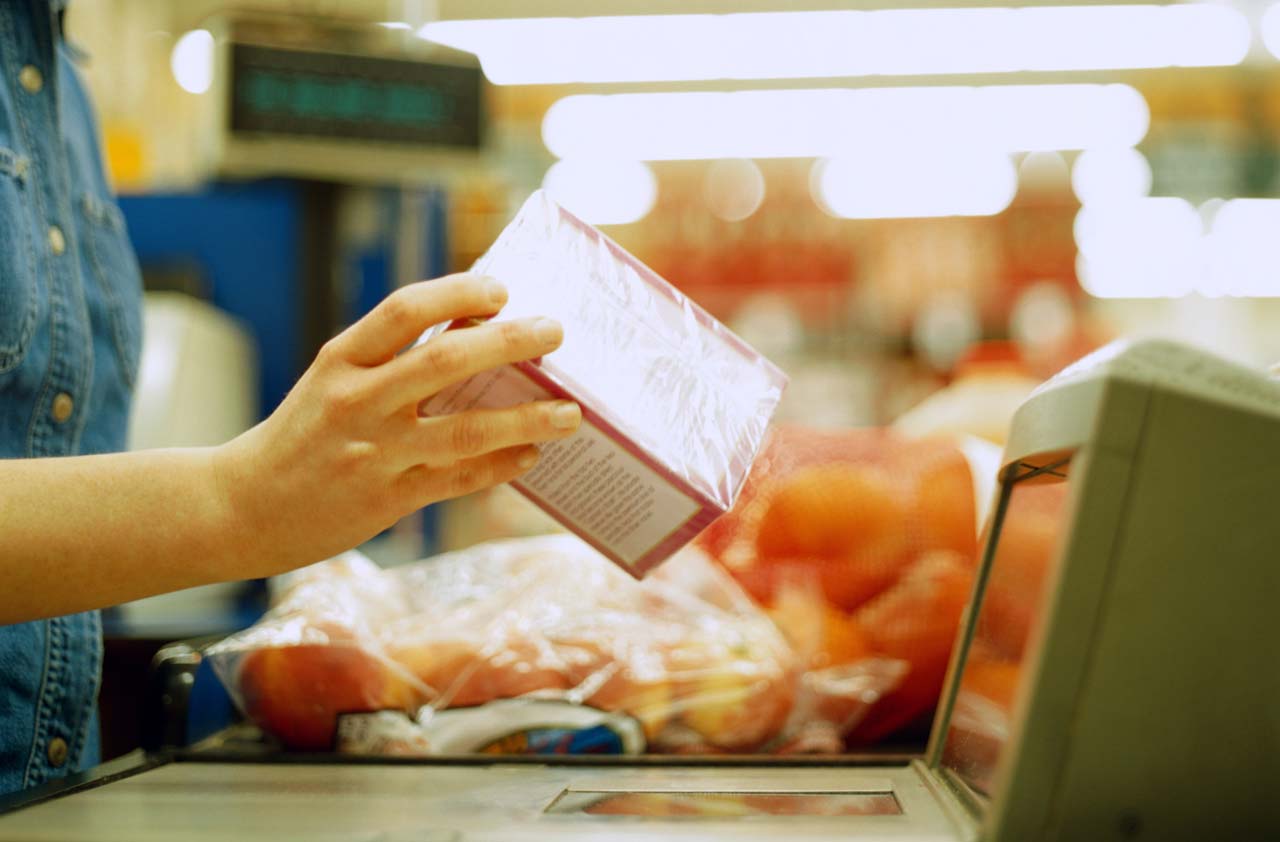
Multiple Bar Codes Make Checkout Faster
You'll notice that all of Aldi's store-brand products have multiple barcodes on them. This is intentional, says Ruggles, the Aldi spokeswoman. The design allows for a quicker checkout, because Aldi cashiers don't have to waste time searching for a single barcode to scan on each item in your shopping cart.
That's not the only way Aldi shoppers can save time. Since product selection is limited, stores are smaller than traditional supermarkets, and layouts are consistent from store to store, it can be faster to find everything on your shopping list at Aldi.
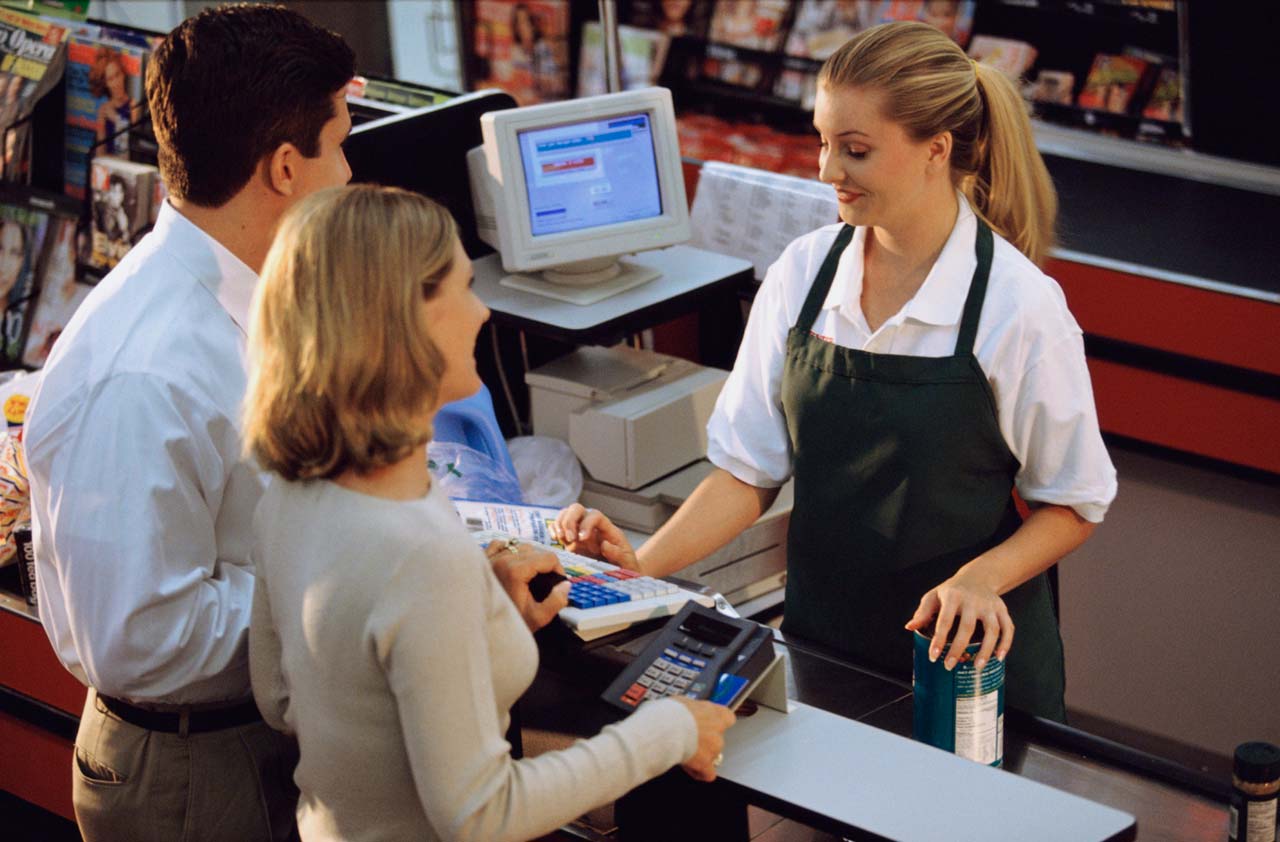
Checks and Coupons Aren't Accepted
If you're planning a trip to Aldi, remember to leave your checkbook at home. As part of its effort toward speedier checkout, the grocer only accepts cash, debit cards, credit cards and contactless payment methods such as Apple Pay and Google Pay. Remember, too, that manufacturer coupons aren't accepted.
If it's any consolation, these restrictions can get you through the line faster since the person in front of you won't waste time filling out a paper check, fishing for an ID or scanning multiple coupons.
Read more: 15 Ways to Save on Groceries Without Clipping Coupons
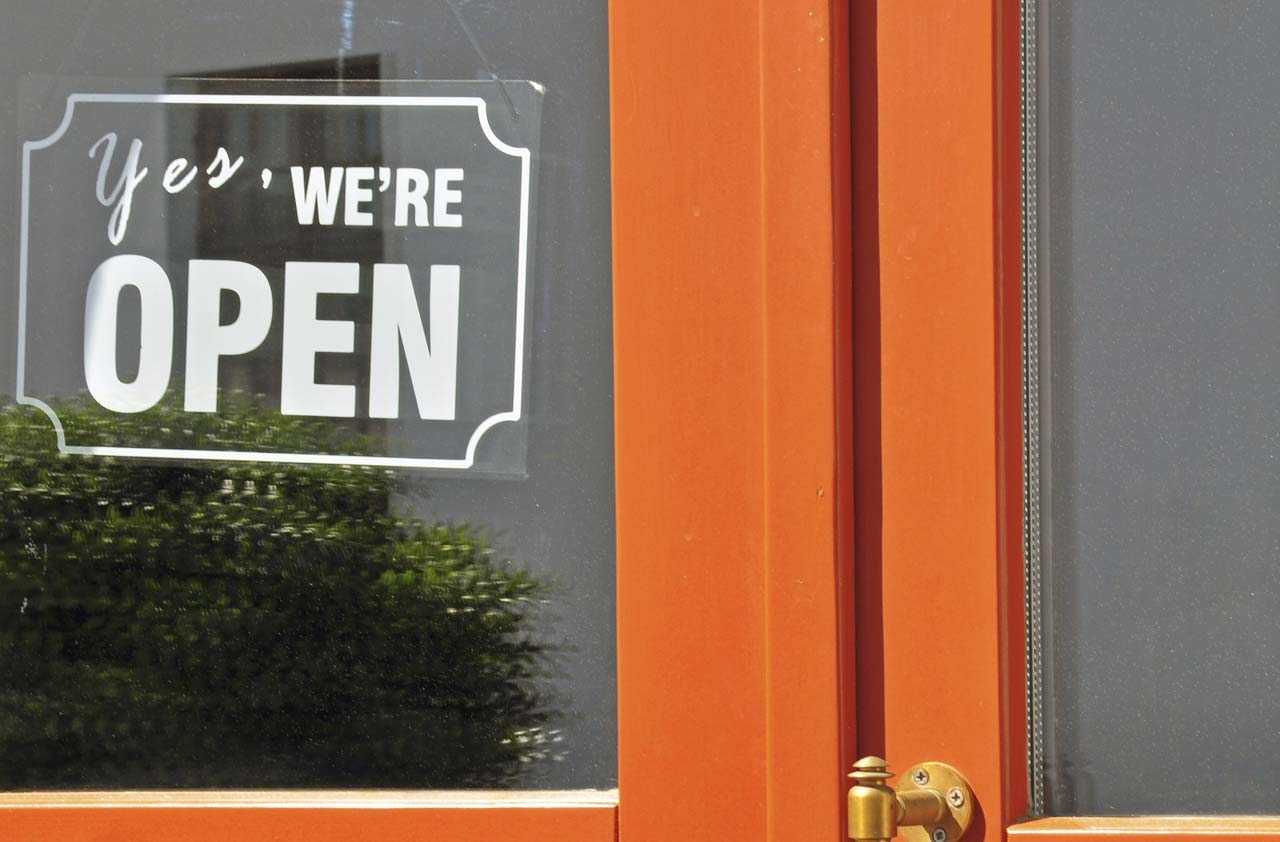
Stores Are Only Open During Peak Hours
Aldi locations operate during peak shopping hours, which typically means they aren't open as early or late as larger competitors. The company's rationale: "Staying open later would simply add to labor costs — and raise our prices."
Read more: Supermarket Showdown: Aldi vs. Whole Foods

You Can Get Your Groceries Delivered
For busy families on the go, carving out an hour or two for grocery shopping in between soccer practice and piano lessons can be difficult. Aldi has made knocking out that weekly task a bit easier by offering online grocery delivery through Instacart in select cities.
If you’re not already registered for Instacart, you’ll need to do so before placing your first order. Once you've signed up, you can load up your virtual shopping cart with many of the same items you’d find in-store, though note that the online prices won’t always be the same as in-store prices.
When you’re ready to check out, you’ll need to schedule delivery and Aldi offers a couple of options. Get your groceries as soon as the same day for a $3.99 delivery fee for orders over $35 for non-members. Instacart members have $0 delivery fees on orders over $35.
Read more: 15 Things Retirees Should Buy at Costco
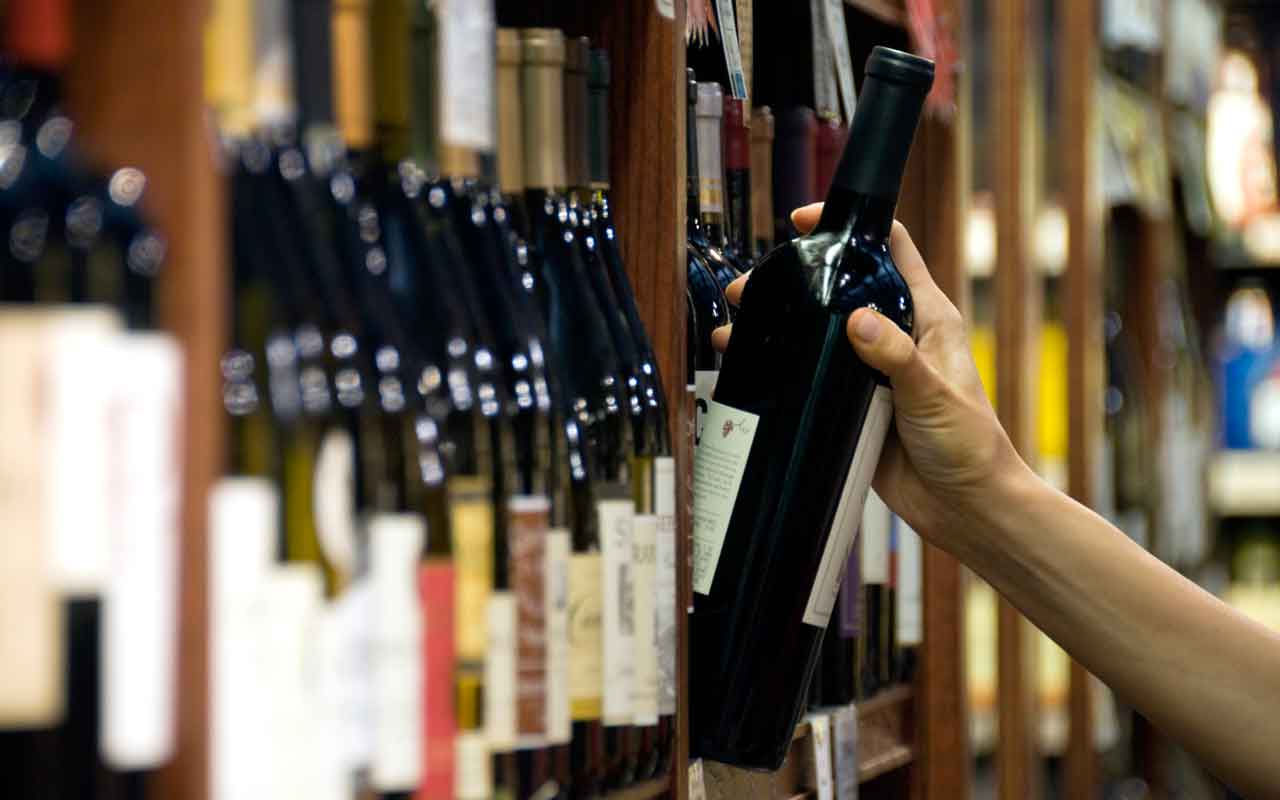
You Can Purchase Beer and Wine
Select Aldi locations sell beer and wine. The reason why all stores don’t sell alcohol is because the discount grocer must obtain special licenses on a store-by-store basis, which can be a lengthy process, the company says.
For shoppers who live near an Aldi location that carries beer and wine, you can expect to find locally sourced and imported options ranging from hard cider and lager beer to cabernet sauvignon and Riesling wines.
The discount grocer’s wine selection has won several beverage industry awards including the World Wine Championship’s Best Buy and Gold Medal awards. Prices vary depending on where you live, but generally range from $5.99 to $14.99 per bottle. Aldi offers several types of beer that are available in four- and six-packs. Per-pack prices typically range from about $5 to $7.
To find out if the Aldi location near you sells alcohol, use their store locator tool at aldi.us/stores. It lets you search nearby stores according to the features they offer -- for example, you can choose to view only stores that sell beer or stores that sell wine or stores that have parking lots.

There Are Affordable Options for Health-Conscious Shoppers
If you don’t eat meat or dairy or prefer organic produce, you’re in luck. You don’t have to spend a small fortune at a pricey specialty supermarket to find suitable options. Aldi has a variety of budget-friendly food items for vegans and vegetarians alike — or those who simply want to make healthier food choices.
The discount grocer’s Earth Grown line is free of animal-based ingredients and includes vegan cheese and various meat alternatives (kale and quinoa crunch burgers anyone?) at affordable prices compared to other stores.
Aldi also has a gluten-free line of products called LiveGFree that includes cereal, baking mixes, frozen pizza, bread and pasta.
Read more: Things You Can Get at Costco Without a Membership
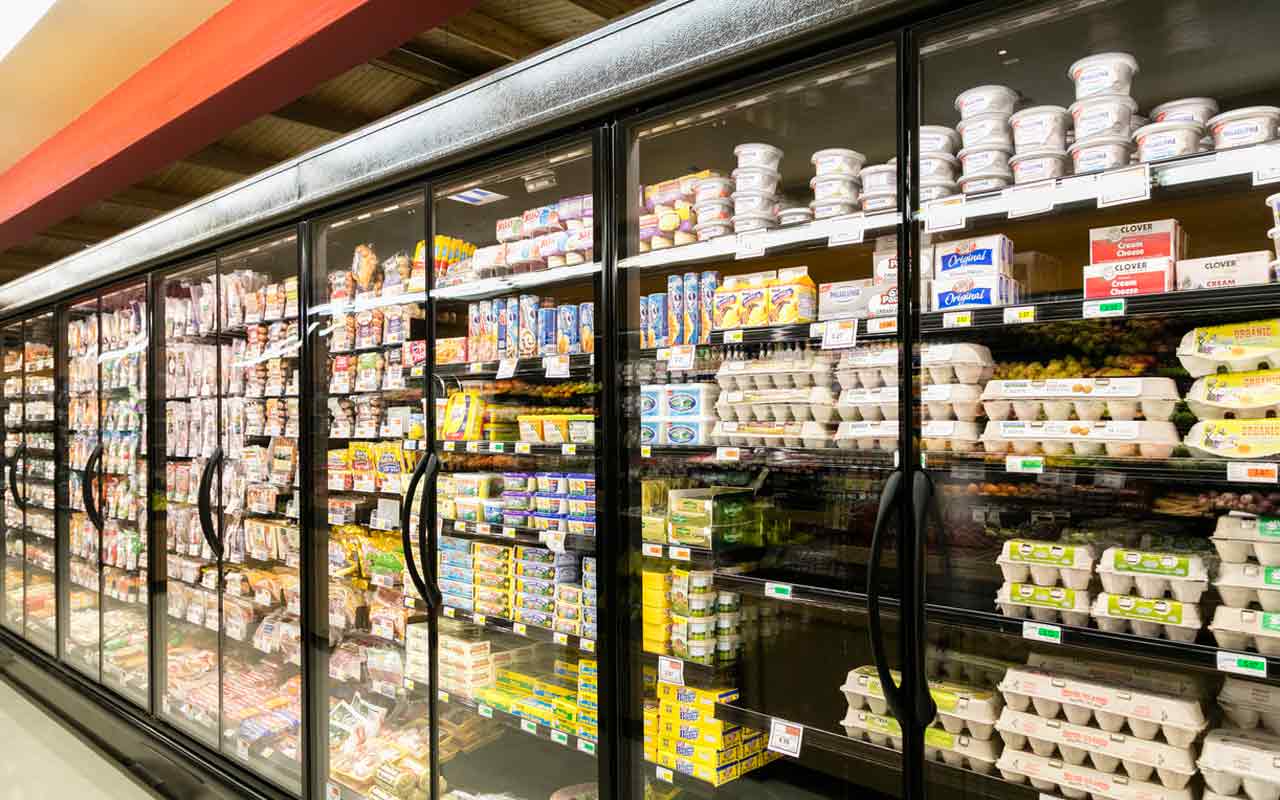
Best Things to Buy at Aldi: Kitchen Staples
Heading to the supermarket for some basics, say a gallon of milk, a dozen Grade A eggs, a loaf of white bread and a jar of peanut butter? Strictly judging by the bottom line, you may want to give Aldi a shot.
Below we priced kitchen staple items from Aldi, Kroger and Walmart:
- Eggs: Aldi, $3.99; Kroger, $4.09; Walmart, $4.92
- Bread: Aldi, $1.55; Kroger, $1.79; Walmart, 1.42
- Peanut butter: Aldi, $2.19; Kroger, $1.99; Walmart, $1.94
- Milk: Aldi, $2.89; Kroger, $2.79; Walmart, $2.66
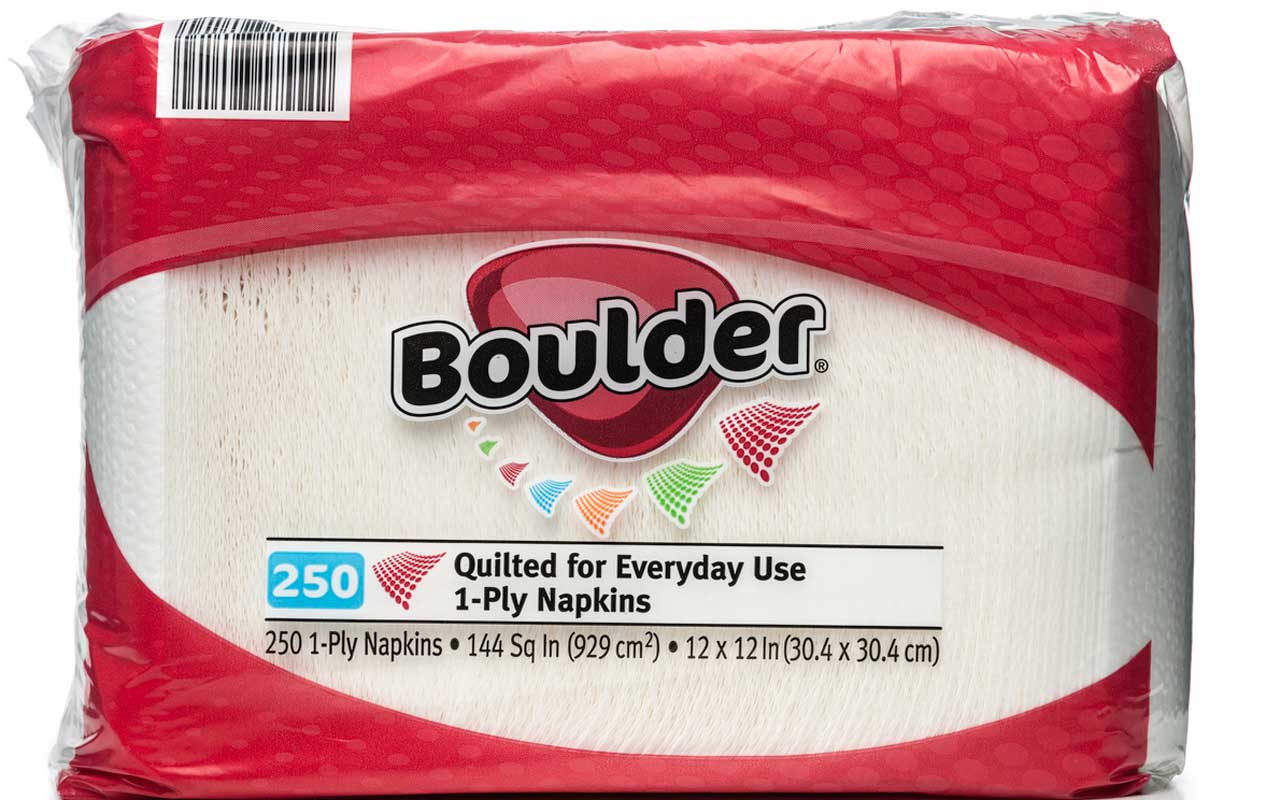
Worst Things to Buy at Aldi: Non-Food Items
Savings experts say it’s best to steer clear of most toys, home goods, cleaning supplies and other non-food items at Aldi. But if you’re tempted -- every so often, Aldi will score national-brand products and put what appears to be amazing prices on them -- first pull out your smartphone and price-compare.
“Make sure you check the price on these as they tend to be higher prices on lower quality items at Aldi,” says money-saving expert Brent Shelton. “Plus, you can often find coupons for these types of items at other stores, even grocers, which would make buying them elsewhere a smart thing to do.” Reminder: Aldi doesn’t accept coupons.
When we compared prices on a roll of paper towels, for example, Aldi’s price of 99 cents was the same as the price at Giant and Target. However, coupons and loyalty discounts could’ve brought down the price more at the latter retailers. (Aldi doesn’t have a loyalty program, either.)

Mixed Reviews: Fruits and Vegetables
Like many of Aldi’s goods, fruits and vegetables are often sold from the bulk boxes they were shipped in. No fancy, bountiful horn-of-plenty displays. And unlike major chains, many Aldi stores, especially older locations, don’t refrigerate produce.
“Produce [from Aldi] can spoil more quickly,” says Tracie Fobes, a money-saving expert at the website Pennypinchinmom.com, “so buy only what you can eat within a few days.”
Also, Aldi pre-packages many of its fruits and vegetables in bulk, so if you want, say, an apple you need to buy an entire bag. Most big supermarket chains sell similar produce loose. The latter approach allows shoppers to pick out the freshest individual items available.
However, Aldi is rolling out changes at new (and newly remodeled) stores aimed at fending off competitors. On top of better lighting and wider aisles, Aldi’s new store format puts fresh produce center stage and includes refrigerated units for the likes of greens, perishable fruits, and premade soups and dips.
Bulk packaging still rules at new stores, but that’s a big reason why Aldi can keep produce prices so low.
Read more: Secrets to Shopping at Costco
Profit and prosper with the best of Kiplinger's advice on investing, taxes, retirement, personal finance and much more. Delivered daily. Enter your email in the box and click Sign Me Up.

Browne Taylor joined Kiplinger in 2011 and was a channel editor for Kiplinger.com covering living and family finance topics. She previously worked at the Washington Post as a Web producer in the Style section and prior to that covered the Jobs, Cars and Real Estate sections. She earned a BA in journalism from Howard University in Washington, D.C. She is Director of Member Services, at the National Association of Home Builders.
-
 Dow Adds 1,206 Points to Top 50,000: Stock Market Today
Dow Adds 1,206 Points to Top 50,000: Stock Market TodayThe S&P 500 and Nasdaq also had strong finishes to a volatile week, with beaten-down tech stocks outperforming.
-
 Ask the Tax Editor: Federal Income Tax Deductions
Ask the Tax Editor: Federal Income Tax DeductionsAsk the Editor In this week's Ask the Editor Q&A, Joy Taylor answers questions on federal income tax deductions
-
 States With No-Fault Car Insurance Laws (and How No-Fault Car Insurance Works)
States With No-Fault Car Insurance Laws (and How No-Fault Car Insurance Works)A breakdown of the confusing rules around no-fault car insurance in every state where it exists.
-
 Costco Gold Bars Keep Selling Out. Are They a Smart Investment?
Costco Gold Bars Keep Selling Out. Are They a Smart Investment?How Costco's bullion program works, how to get the best deal and whether it makes sense for investors.
-
 21 Last-Minute Gifts for Grandparents Day 2025 to Give Right Now
21 Last-Minute Gifts for Grandparents Day 2025 to Give Right NowHoliday Tips Last-minute gifting is never easy. But here are some ideas to celebrate Grandparents Day.
-
 Texas Sales Tax-Free Weekend 2025
Texas Sales Tax-Free Weekend 2025Tax Holiday Here's what you needed to know about the Texas sales tax holiday.
-
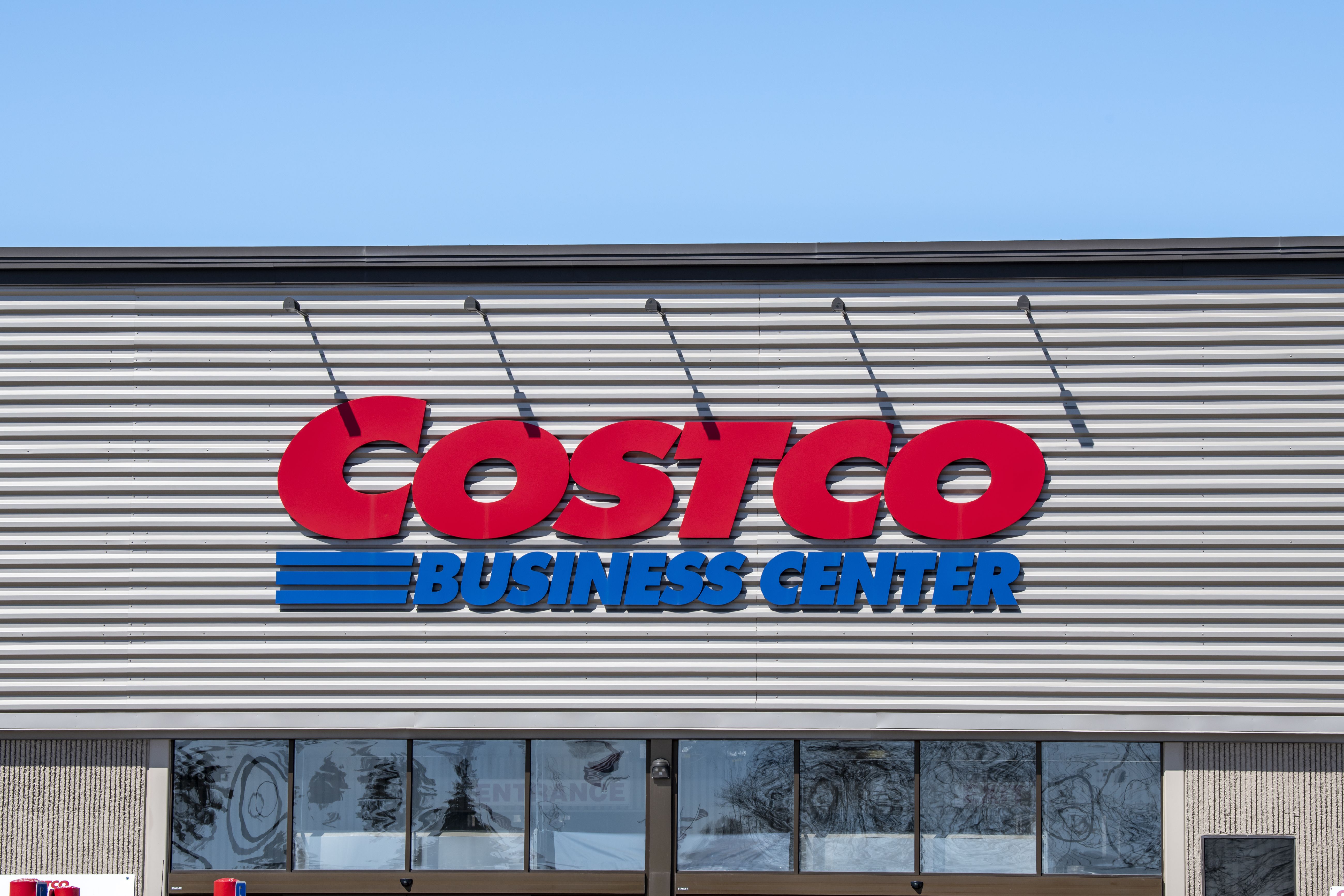 I Live Next to a Costco Business Center. Here Are 5 Things You Won't Find at a Costco Wholesale
I Live Next to a Costco Business Center. Here Are 5 Things You Won't Find at a Costco WholesaleYou don't need to own a business to shop at a Costco Business Center. Here are five reasons to visit the one near you.
-
 Alabama Tax-Free Weekend 2025
Alabama Tax-Free Weekend 2025Tax Holiday Here’s everything you need to know about the 2025 back-to-school Alabama sales tax holiday.
-
 What to Do With Your Tax Refund: 6 Ways to Bring Growth
What to Do With Your Tax Refund: 6 Ways to Bring GrowthUse your 2024 tax refund to boost short-term or long-term financial goals by putting it in one of these six places.
-
 What Does Medicare Not Cover? Eight Things You Should Know
What Does Medicare Not Cover? Eight Things You Should KnowMedicare Part A and Part B leave gaps in your healthcare coverage. But Medicare Advantage has problems, too.
-
 15 Reasons You'll Regret an RV in Retirement
15 Reasons You'll Regret an RV in RetirementMaking Your Money Last Here's why you might regret an RV in retirement. RV-savvy retirees talk about the downsides of spending retirement in a motorhome, travel trailer, fifth wheel, or other recreational vehicle.
